projects
phd
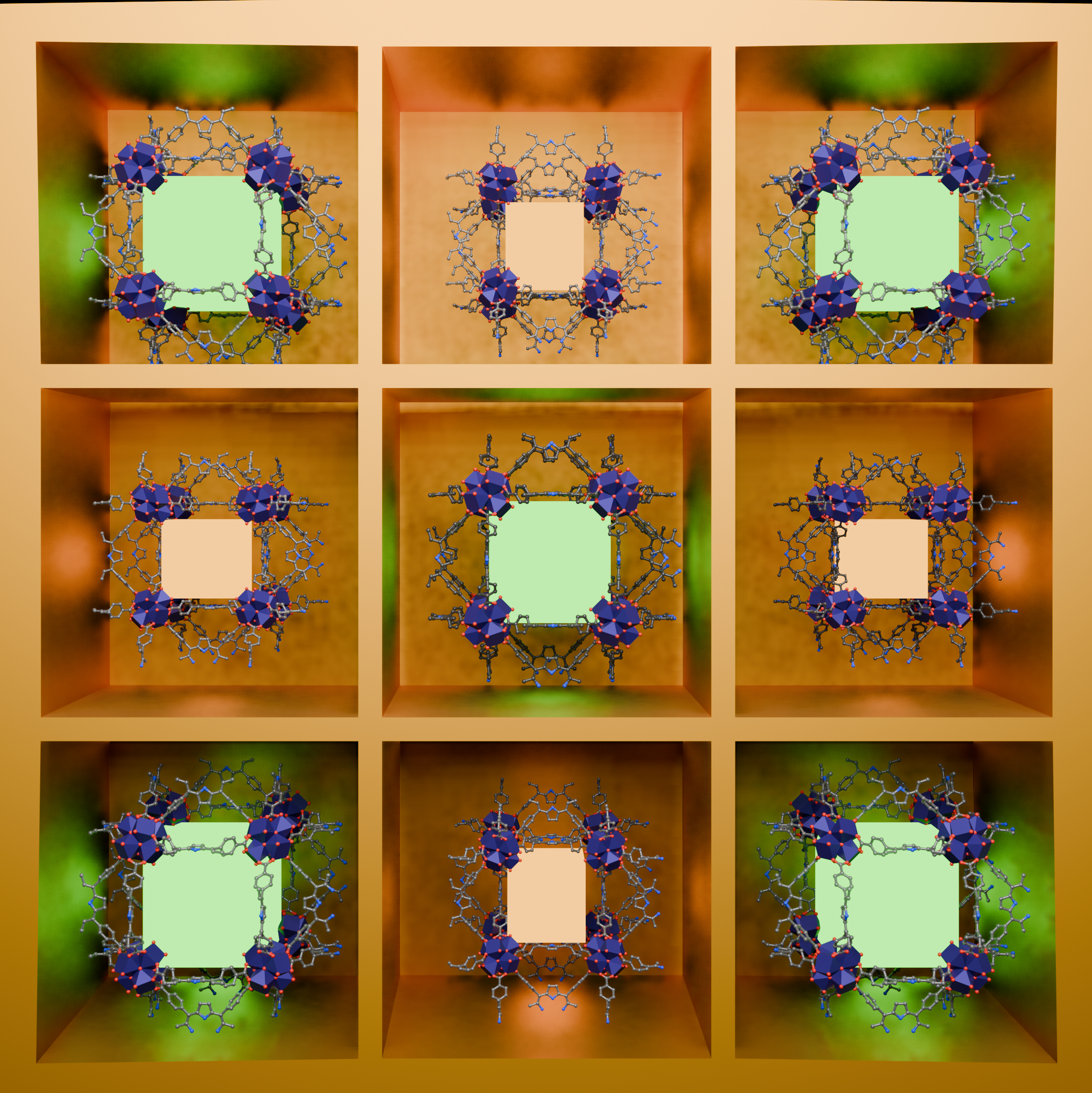
Pore Structure Compartmentalization of Metal-Organic Frameworks
We developed a versatile Python algorithm based on clustering algorithm to partition the unit cell of a crystalline structure into individual pore compartments. This enables extracting a realistic shaped pore compartments within any metal-organic framework given its structure.
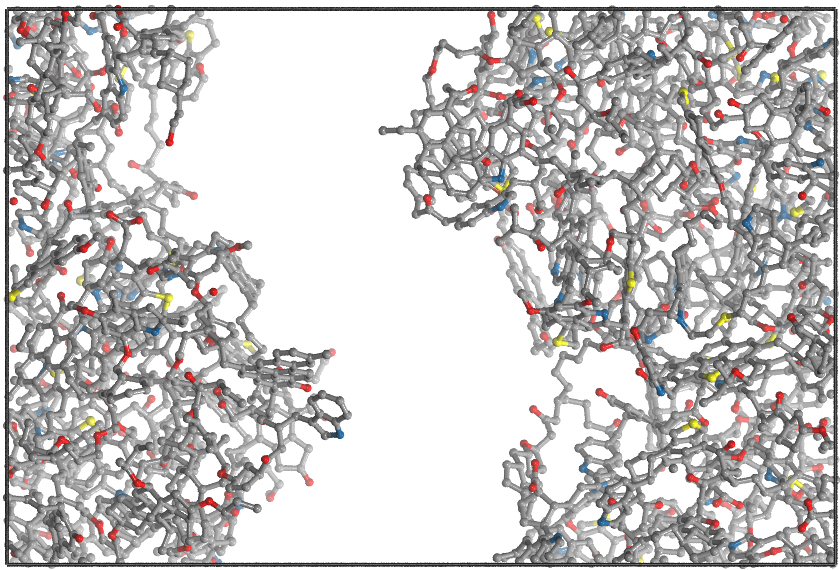
Multiscale Modeling of Gas Adsorption in Kerogen
The organic material found in shale rock, known as Kerogen, serves the dual purpose of being a source of natural gas as well as a reservoir for it. We used Monte Carlo simulations, Density Functional Theory and the Derjaguin–Broekhoff–de Boer model to predict adsorption in meso/macropores. This work provides a comprehensive characterization of organic porosity in kerogen fractions.
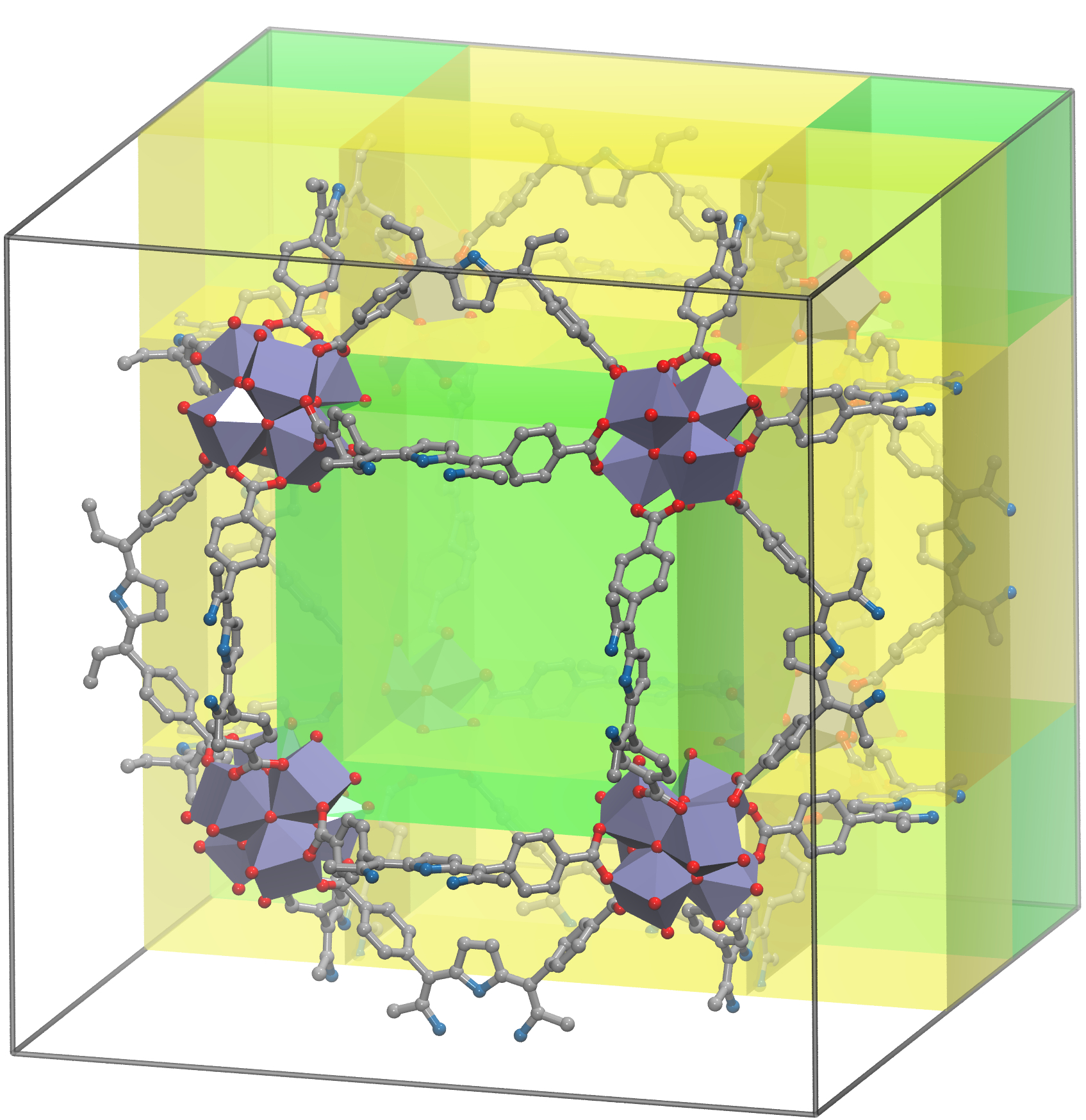
Pore Characterization of Metal-Organic Frameworks (MOFs)
MOFs are made up of 3d network of interconnected pore compartments. We used Monte Carlo simulations to generate fingerprint isotherms corresponding to each pore type. This work enables characteriation of experimental samples in terms of pore accessibility and degree of sample crystallinity.
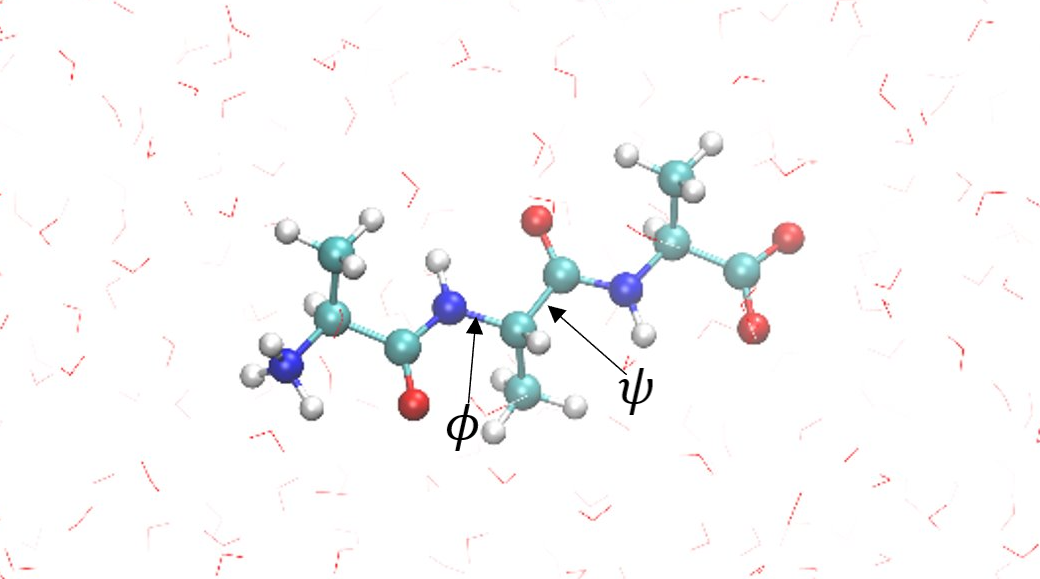
Free Energy Landscape of Trialanine in Water
To examine the free energy landscape of trialanine in explicit solvent, we utilized the Umbrella sampling method to generate the potential of mean force (PMF) as a function of dihedral angle. Our results demonstrate that Umbrella sampling can provide a useful qualitative depiction of the free energy landscape.
undergrad
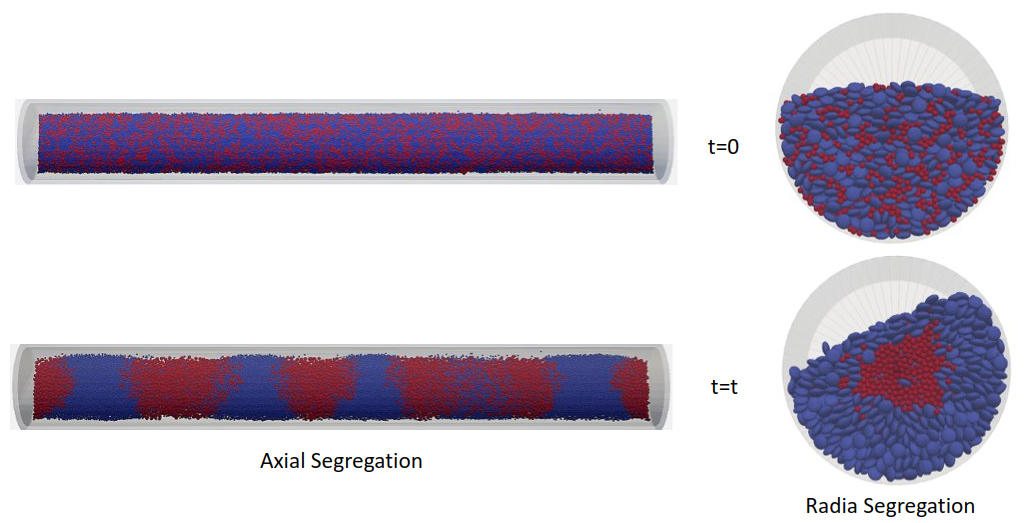
Segregation of Granular Particles in a Rotating Drum
In the context of studying radial and axial segregation, DEM simulations were performed to simulate the behavior of a mixture of particles of different sizes and shapes inside a rotating cylinder. The simulations provide insight into the mechanism that drive the segregation which is useful in designing and optimizing processes in pharmaceutical, food, and mining industries.
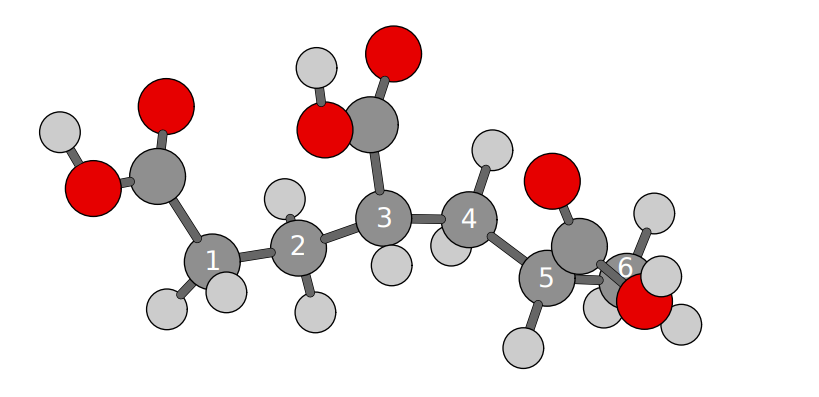
Trends in Pka of Oligomers of Acrylic Acid
Oligomers of acrylic acids find diverse applications in bioseparations and catalysis.By utilizing the thermodynamic cycle of acid deprotonation, we performed Ab initio calculations to determine the pKa of an acrylic acid oligomer based on its conformation, tacticity, the number of carboxylic acid groups, and the charges on the conjugated acid-base pair.
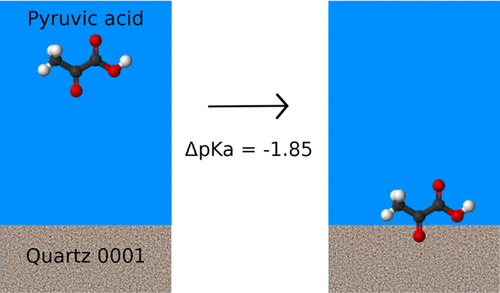
Increased Dissociation of Pyruvic Acid at Quartz/water Interface
We used a combination of electronic structure-based molecular dynamics and free energy perturbation approaches to investigate the dissociation of pyruvic acid at interface between quartz and water. We employed the thermodynamics integration method to calculate the difference of free energies of acid dissociation at interface and bulk.